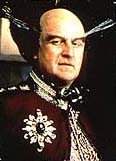Official Everybody Edits Forums
Do you think I could just leave this part blank and it'd be okay? We're just going to replace the whole thing with a header image anyway, right?
You are not logged in.
- Topics: Active | Unanswered
Pages: 1
#1 2016-12-11 23:19:06, last edited by drunkbnu (2016-12-11 23:20:05)
- drunkbnu
- Formerly HG
- Joined: 2017-08-16
- Posts: 2,306
Message
The event argument handler is commonly defined "e". PlayerIOClient.Message is an event argument handler, and so I'd look it as a default by defining it "e".
con.OnMessage += delegate (object sender, Message e) { // ... }Yet I see many people defining Message "m". I'd like to know why this choice. I work on my projects defining Message "e".
Offline
#2 2016-12-11 23:25:27
- Era
- Member

- From: ::1
- Joined: 2015-05-06
- Posts: 884
Re: Message
i do this because the word message starts with m
Offline
- Wooted by: (2)
#3 2016-12-12 02:32:33, last edited by Tomahawk (2016-12-12 02:35:35)
- Tomahawk
- Forum Mod

- From: UK
- Joined: 2015-02-18
- Posts: 2,847
Re: Message
PlayerIOClient.Message is not an event handler or "event argument handler".
Documentation: https://playerio.com/documentation/refe … ry.message
One bot to rule them all, one bot to find them. One bot to bring them all... and with this cliché blind them.
Offline
#4 2016-12-12 02:35:41
- XxAtillaxX
- Member

- Joined: 2015-11-28
- Posts: 4,202
Re: Message
OnMessage is an EventHandler and Message is the EventArgs, which is often specified as 'e'.

*u stinky*
Offline
#5 2016-12-12 09:26:19
- den3107
- Member
- From: Netherlands
- Joined: 2015-04-24
- Posts: 1,025
Re: Message
I generally define my exceptions using e (instead of the common ex), plus, as said by Era, "Message" starts with "m".
@Atilla
Message is an event argument (trivial description) not an EventArgs (actual Object type). Eitherway it'd obviously still start with "e".
P.S. Player.IO themselves also use "m" instead of "e".
Offline
#6 2016-12-12 09:42:25, last edited by XxAtillaxX (2016-12-12 09:42:57)
- XxAtillaxX
- Member

- Joined: 2015-11-28
- Posts: 4,202
Re: Message
@Atilla
Message is an event argument (trivial description) not an EventArgs (actual Object type). Eitherway it'd obviously still start with "e".
That's not a correction, it's semantics.
Player.IO doesn't always use 'm', either.

*u stinky*
Offline
- Wooted by:
Pages: 1
[ Started around 1732413396.4057 - Generated in 0.040 seconds, 12 queries executed - Memory usage: 1.44 MiB (Peak: 1.56 MiB) ]


